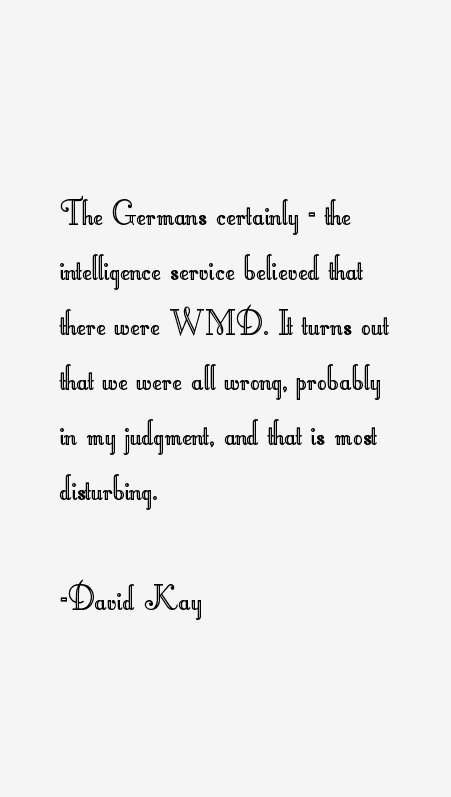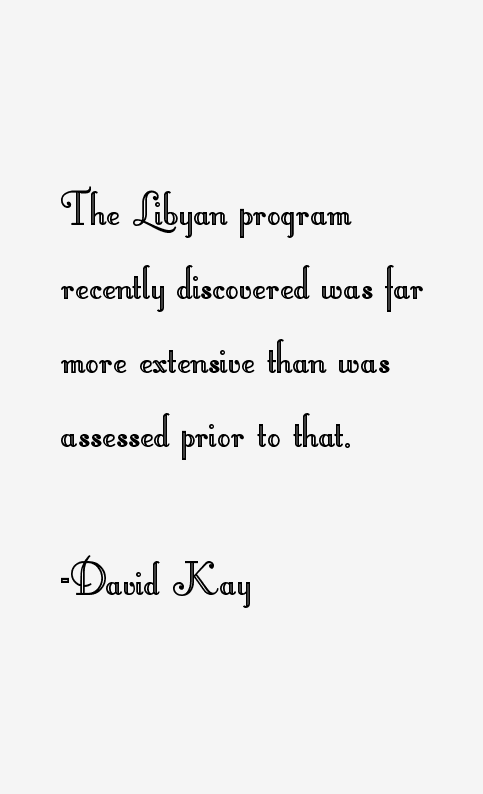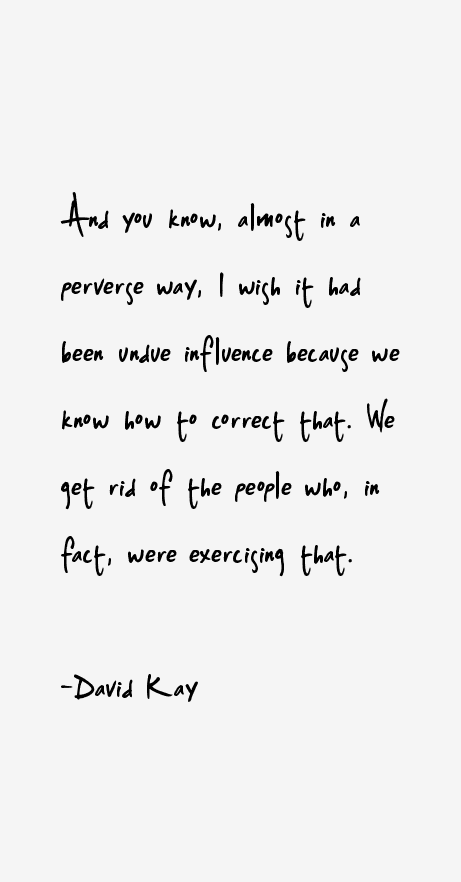David Kay Quotes & Sayings (Page 2)
David Kay quotes and sayings page 2 (scientist). Here's quote # 11 through 20 out of the 28 we have.
“The fact that it wasn't tells me that we've got a much more fundamental problem of understanding what went wrong, and we've got to figure out what was there. And that's what I call fundamental fault analysis.”
“A great deal has been accomplished by the team, and I do think it important that it goes on and it is allowed to reach its full conclusion. In fact, I really believe it ought to be better resourced and totally focused on WMD; that that is important to do it.”

“Fortunately, President Kennedy and Robert Kennedy disagreed with the estimate and chose a course of action less ambitious and aggressive than recommended by their advisers.”

“The Germans certainly - the intelligence service believed that there were WMD. It turns out that we were all wrong, probably in my judgment, and that is most disturbing.”

“The Libyan program recently discovered was far more extensive than was assessed prior to that.”
“And like I say, I think we've got other cases other than Iraq. I do not think the problem of global proliferation of weapons technology of mass destruction is going to go away, and that's why I think it is an urgent issue.”

“Let me begin by saying, we were almost all wrong, and I certainly include myself here.”
“And never - not in a single case - was the explanation, 'I was pressured to do this.' The explanation was very often, 'The limited data we had led one to reasonably conclude this. I now see that there's another explanation for it.'”

“And you know, almost in a perverse way, I wish it had been undue influence because we know how to correct that. We get rid of the people who, in fact, were exercising that.”
“As leader of the effort of the Iraqi Survey Group, I spent most of my days not out in the field leading inspections. It's typically what you do at that level. I was trying to motivate, direct, find strategies.”
David Kay Quotes Rating
No Ratings Yet
Leave A Comment
























